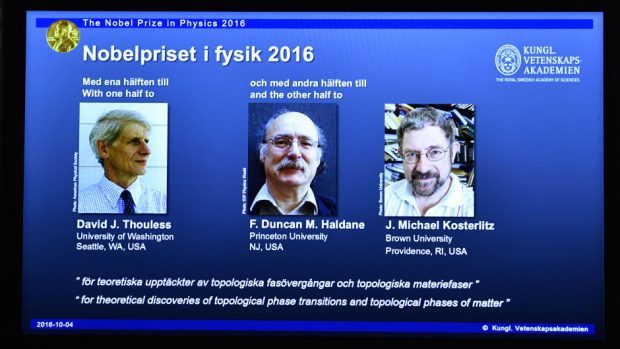A north east-born scientist said he was “elated” to have been awarded a Nobel Prize for his pioneering work on “exotic matter”.
Professor Michael Kosterlitz, a former pupil of Robert Gordon’s College, helped pave the way for developments such as quantum computers.
The son of an award-winning Aberdeen University medical researcher, his work blew apart conventional physics wisdom in the 1970s.
The prize is shared with fellow Scot David Thouless – with whom he developed the revolutionary theories – and Duncan Haldane.
All three remain based in America after joining the exodus of British scientists across the Atlantic in what was dubbed the “brain drain”.
The prize committee said they had “opened the door to a mysterious world in which matter can assume unusual states unknown in nature”.
Using advanced mathematical modelling to study strange “phases” of matter, they sparked an ongoing search for new materials for use in electronics and superconductors – or in future quantum computers.
Prof Kosterlitz has been based at Brown University in Rhode Island since 1982.
But he found out about his win – worth £180,000 – in a less than glittering location in Finland where he is a visiting academic.
“That’s incredible. That’s quite amazing,” he told the official who broke the news in an interview posted on the Nobel website.
“It just feels a little bit odd getting this news in an underground car park in Helsinki.”
Prof Kosterlitz spoke warmly of his north-east roots when he returned to the Granite City in 2010 to open the university’s Kosterlitz Centre for Therapeutics – named after his illustrious father.
Hans Kosterlitz, best known for his discovery of natural painkillers made by the brain, fled Nazi Germany to the north-east in 1934 and was a well-known figure in Aberdeen until his death in 1996 aged 93.
His son – who aged 16 went to Edinburgh Academy in successful preparation to get to Cambridge University – grew up an avid climber.
At the age of 22, he was hailed for battling five hours across a glacier in a blizzard to get help for a companion who collapsed in the French Alps.
Robert Gordon’s head of physics Stuart Farmer, said the school “has a long tradition of excellence” in the subject.
He said: “It is great to see a Gordonian go on to be awarded the ultimate accolade.”
An Aberdeen University spokesman said it was “delighted”.
“Hans Kosterlitz was a pioneering researcher and his son’s work is similarly ground breaking,” he said.
